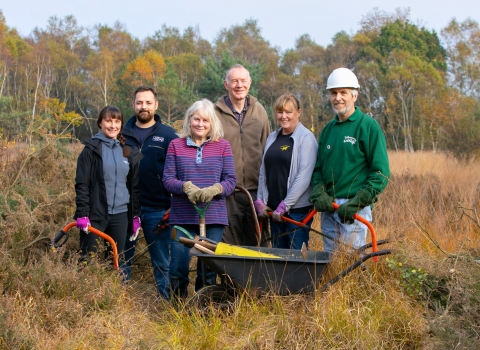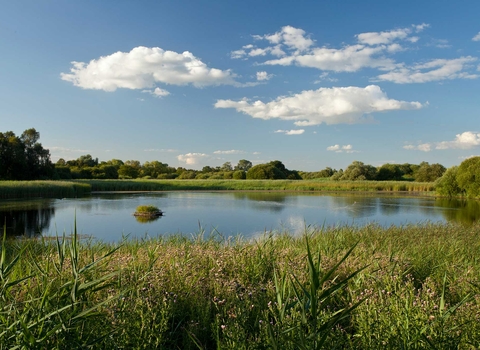The theme this year, Wetlands Action for People and Nature, highlights the importance of actions to ensure the conservation of wetlands for human and planetary health.
In Surrey, the Wildlife Trust is celebrating the work of the Wey Landscape Partnership, Friends of Flood Meadows, Friends of the River Wey volunteers and Alton Council in restoring a 100-metre stretch of rare chalk stream habitat in Alton. The stream runs through Flood Meadows nature reserve and feeds the adjoining wetland, where chalk stream plants, moorhen and other wetland birds thrive.
Chalk springs rise from the ground at Flood Meadows in Alton, one of the two main sources of the River Wey. So, the river and adjoining wetlands in Alton are ground water fed and become a very rare, and gin clear, chalk stream, which is one of the rarest habitats in the world. These then feed into the River Wey and River Thames.


